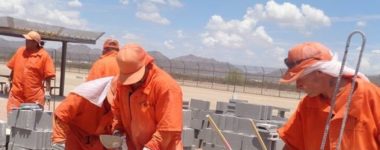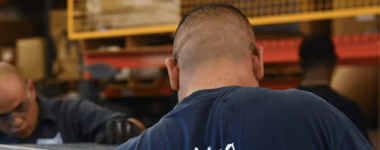The Last Mile
 To the north of San Francisco and Silicon Valley sits California’s renowned San Quentin State Prison, home to some 4,000 inmates. Those two worlds, far apart in nearly every respect but geography, are forging a connection that is changing lives.
To the north of San Francisco and Silicon Valley sits California’s renowned San Quentin State Prison, home to some 4,000 inmates. Those two worlds, far apart in nearly every respect but geography, are forging a connection that is changing lives.
In December, Google announced a $2 million grant to The Last Mile, a nonprofit that was founded in 2010 to bring entrepreneurship programs to San Quentin and went on to introduce a groundbreaking coding curriculum designed to give inmates marketable skills and a better chance at success in the outside world. The group now trains software developers in 13 prisons in California and three other states, with plans to be in 17 facilities in six states by year-end. To date, it boasts a zero percent recidivism rate among its graduates.
“We’re optimistic in our belief that computer science can play an important role in helping people develop skills needed for today’s economy,” says Maab Ibrahim, criminal justice lead at Google.org, the philanthropic arm of the search giant. Education, workforce development, and economic opportunity are centerpieces of Google’s charitable efforts, and that includes addressing racial bias and inequity in the criminal justice system. Over the past five years, Google.org has given more than $32 million to nonprofits advancing criminal justice reform.
Leaders at Google.org first visited The Last Mile at San Quentin over a year ago. “We were so impressed by the students that we immediately funded putting laptops into the hands of recent graduates, and wanted to do more,” says Ibrahim.
 This grant will help The Last Mile educate and train 525 incarcerated men, women, and youth around the country over the next two years. “The tech field and society will benefit from what they can bring to the table as digital creators,” Ibrahim adds.
This grant will help The Last Mile educate and train 525 incarcerated men, women, and youth around the country over the next two years. “The tech field and society will benefit from what they can bring to the table as digital creators,” Ibrahim adds.
Partnering with the business community is nothing new for The Last Mile. Founders Chris Redlitz and Beverly Parenti come from the venture capital and technology worlds. Volunteers, guest speakers, and mentors from tech firms play a hand in the prison coding classes, which run over three six-month semesters. “We’re starting to see a growing consciousness in the tech world of how tech can integrate with the larger society,” says Hayley Benham-Archdeacon, business account manager at TLM Works. (TLM stands for The Last Mile.)
In TLM Works, a one-of-a-kind development shop within San Quentin that was launched in 2016, inmates earn about $17 an hour building websites for outside clients. (Due to prison rules, inmates must work without internet access and within highly restricted hours.) To prepare those employees for jobs on the outside—a first job ever, for some—TLM Works tries to replicate a professional tech workplace. “We put a heavy emphasis on teamwork, collaboration, and stand-up meetings,” says Sydney Heller, TLM Works technical manager, “so it’s less of a shock when they go out in the world.”
At mentor days every other Wednesday, software developers from a variety of tech companies including Google, Facebook, Alibaba, Dropbox, and Pandora, to name a few, stop by The Last Mile classrooms to answer questions from the inmates. “Through that socializing with people from the outside they become more comfortable and a transformation happens,” says Benham-Archdeacon. Google employees have long been among those who’ve volunteered at The Last Mile. Now as part of this new arrangement, Google software engineers, program managers, and designers will help review code and expand the curriculum.
 Jason Jones credits this kind of contact with tech professionals inside San Quentin with helping him land a position with the San Francisco company Fandom even before he left prison in 2018. (He has since taken a job with The Last Mile, building out the group’s virtual instruction program.) Jones, 35, had spent more than 13 years in San Quentin for assault with a deadly weapon. “Before The Last Mile I was getting into trouble, I was angry, and I saw no reason to better myself,” he says. “Coding blew my mind, it’s a whole other world.” As he trained, he treated every visit from an outsider as a chance to network—a mind-set that paid off.
Jason Jones credits this kind of contact with tech professionals inside San Quentin with helping him land a position with the San Francisco company Fandom even before he left prison in 2018. (He has since taken a job with The Last Mile, building out the group’s virtual instruction program.) Jones, 35, had spent more than 13 years in San Quentin for assault with a deadly weapon. “Before The Last Mile I was getting into trouble, I was angry, and I saw no reason to better myself,” he says. “Coding blew my mind, it’s a whole other world.” As he trained, he treated every visit from an outsider as a chance to network—a mind-set that paid off.
This type of seamless transition from prison to the workplace is something The Last Mile would like to see even more of. One recent development is another step in that direction: last August the tech firm Slack announced a yearlong apprenticeship program for three graduates of The Last Mile, called Next Chapter.
Early clients of TLM Works were often other likeminded nonprofits who needed help with a website. Now the goal is to build more ongoing relationships with private firms. “If you can have established relationships with a company, the hope is they will be more open to hiring you once you’re released,” says Heller.
Even if graduates don’t join the tech industry, The Last Mile training can make a difference. “We’re teaching life skills, if not strictly coding skills,” Heller says. “It’s such an abrupt readjustment coming back to society. Does The Last Mile solve that? No. But even marginal steps in adjusting reduce the chance of failure.”
Google.org’s Ibrahim echoes that: “For someone who has been incarcerated, technical skills like coding, as well as business skills like teamwork and collaboration, can ease the transition back into their community.”
For Jones, The Last Mile prison program taught him a profession—and a new way of approaching problems. “With coding, you have to slow down and break apart the problem,” he says. “In prison, I started doing the same thing: think things out, weigh my options, and think about which is the best longterm solution for me. With coding you want long-term results, and that trickled over to my life.”







